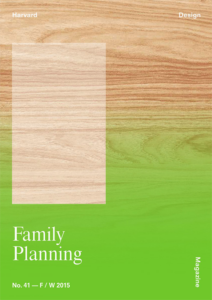Dragons, Poets, and the Real World
Martti Kalliala
Your work explores many forms of social association, beyond the nuclear family, in great depth. What is your personal relationship with the idea of the family and related notions such as kinship, socialization, and intergenerationality?
Ursula K. Le Guin
I have personal relationships with other people, and animals, and (in a way) trees, and houses, and places, and even rocks; but I don’t have personal relationships with ideas. I don’t know how. Possibly in cyberspace? But I don’t live there.
The idea of kinship certainly played a small part in my own family life, because my father, an anthropologist, knew a good deal about kinship practices and theories—he could tell us cool things like how in some cultures your maternal uncle acts as your father and your father is just one of the older men, or how in other cultures you and your mother-in-law can only speak jokingly to each other. But (perhaps because my father was an anthropologist not a sociologist) intergenerationality was not a word in the family vocabulary. I have no personal relationship or history of any kind with the concept of intergenerationality, although I’m sure we practiced it quite vigorously, as a family of more than one generation is obliged to do.
Anything about families in my writing is based far more on personal experience, personal relationships in the bodily/emotional sense, and on literary works, than on any intellectual concepts of family nuclear, extended, or metaphorical. However, the vastly extended application of the idea of family in such usages as “the kinship of all life on earth” has steadily grown in importance to me, and I think to many people, during my lifetime. Science fiction—the only kind of fiction that has as yet fully internalized the Copernican and the Darwinian revolutions—gave me the chance to play freely with the implications of that idea, pursuing thought experiments in the construction of kinship, marriage, alienness, gender, etc.
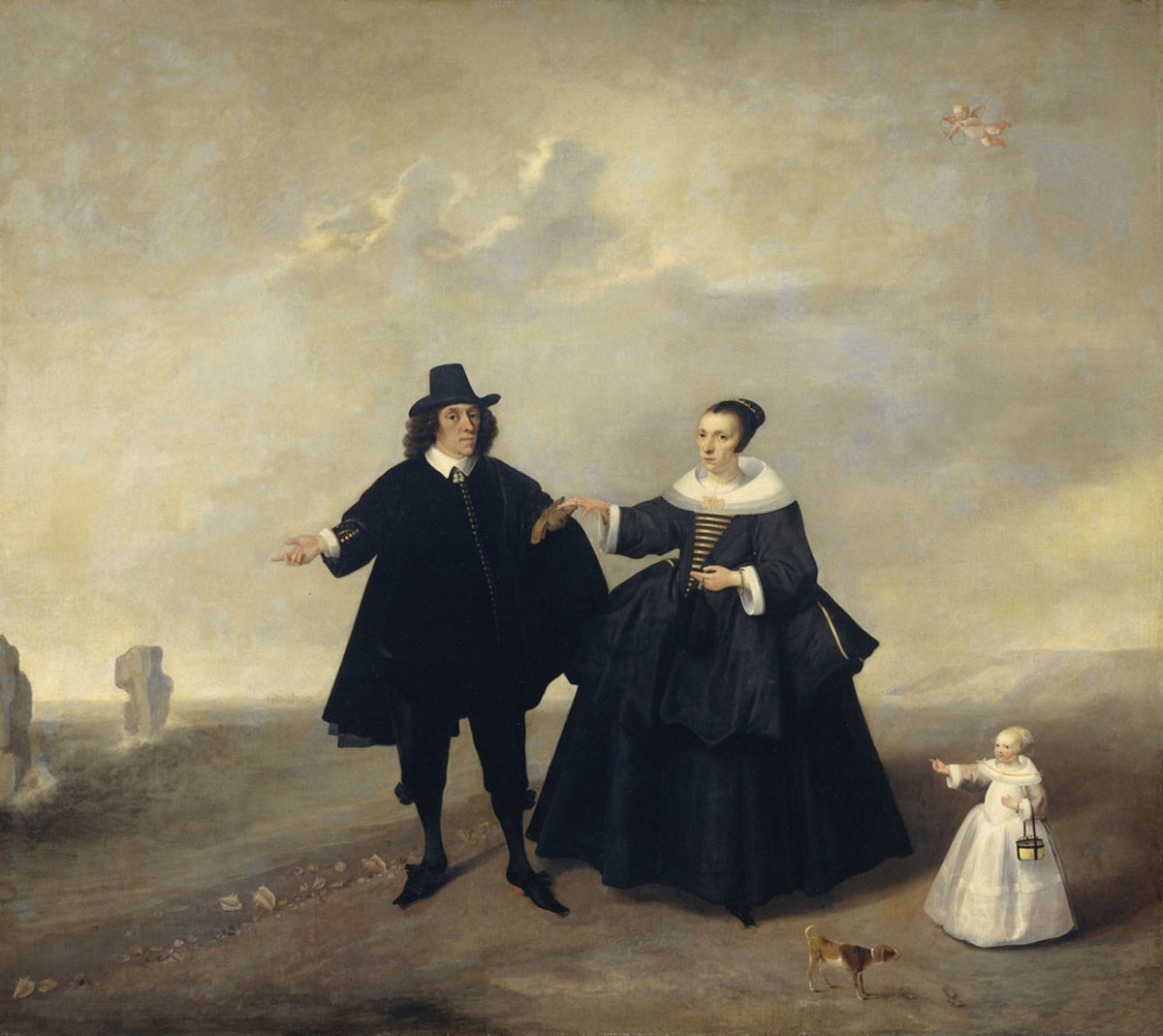
MK
In most societies, names carry a large amount of information related to class, gender, age, kinship, affinity, tribal affiliation, and ethnicity. Your books describe a variety of different naming practices and you have spoken about excavating the “true” name of things—naming as a form of magic. It is also interesting that you use the initial “K” in your name as a reference to your maiden name Kroeber. Could you talk about the significance of names in your work?
UKL
In my generation, to keep one’s “maiden” name (i.e., one’s father’s last name) after marriage was a highly unusual statement, interpretable as “daddy is more important than hubby to me.” I married in 1953, before anybody was renaming themselves Westwind Flowerchild. My name is Ursula. And my given last name was Kroeber; I liked Kroeber, I was used to it, didn’t want to lose it—but, honestly, Ursula Kroeber Le Guin? I have to spell any one of those names and tell people how to pronounce it every time I use it. All four of them? Forget it. And my mother’s maiden name was Kracaw. So I kept the K. The only Kafkaesque thing about me.
The significance of names. You sure do ask enormous questions. To know the true name of a thing is to have power over the thing: a very widespread idea, which makes sense to most of us whether or not we want it to. It probably has to do with the fact that in much of our thinking we use language, words, names, and it is our thinking that gives us much of our control over our world. So, the Boss says, “Be!” and the world is. And then who gets to name the animals? The guy the Boss puts in control of the animals. Right? So, I wrote a story about how Eve decides it wasn’t a very good idea to name them in the first place, or it wasn’t done very well, or anyhow isn’t a good idea anymore. It’s called “She Unnames Them.”
MK
In The Dispossessed and The Left Hand of Darkness, two of your early explicitly politically charged works, you propose two radically different ideas of “family” through subversions of the concepts of property and gender. In the former, you describe the anarchist communist civilization on the planet Anarres, where children are assigned a random five- or six-letter name—no surname—and are raised collectively, completely devoid of any kind of possessive or property relationship to their parents. In the latter, the genderless civilization of the planet Gethen exists without psychosexual parent-child relationships.
UKL
But not without parent-child relationships! In imagining Gethenian society, it’s true, I rejoiced in the opportunity to completely escape from Freud’s obsessive sexualization of filiality (and from penis envy and all that bushwa, too). But the narrative structure of The Left Hand of Darkness, and my unfamiliarity with Gethen when I wrote it, gave me little opportunity to show parent-child relationships—except very briefly in the final chapter. In the much later novella Coming of Age in Karhide, I was able partly to make up for that, showing a robustly affectionate mother-child relationship, and giving at least a glimpse of the complexity and depth of intergenerational and heterogenerational relationships in a large, nonhierarchical Karhidish household.
In The Dispossessed, the protagonist’s mother is a rather withdrawn, intellectual person to whom motherhood isn’t of primary importance. She’s not meant to be typical of her society. Her coldness may explain certain aspects of her son’s personality; it serves also to show that her society permits a woman such aloofness without the punitive social disapprobation we might expect, or demand. I thought the joyfully loving relationship of the protagonist, his partner, and their daughter would counterweigh it. But some readers, ignoring that, decide on the basis of that one case that parents and kids don’t love each other on Anarres, or even that non-possessive love is an impossibility.
MK
In your writing you vividly spatialize and frame modes of social organization through architectural and urban forms, like the kemmerhouses of the The Left Hand of Darkness or the dormitories and cellular organization of the city Abbenay in The Dispossessed. How has this part of your writing been informed? Are there specific historical or contemporary architectural references that have been important to you in this regard?
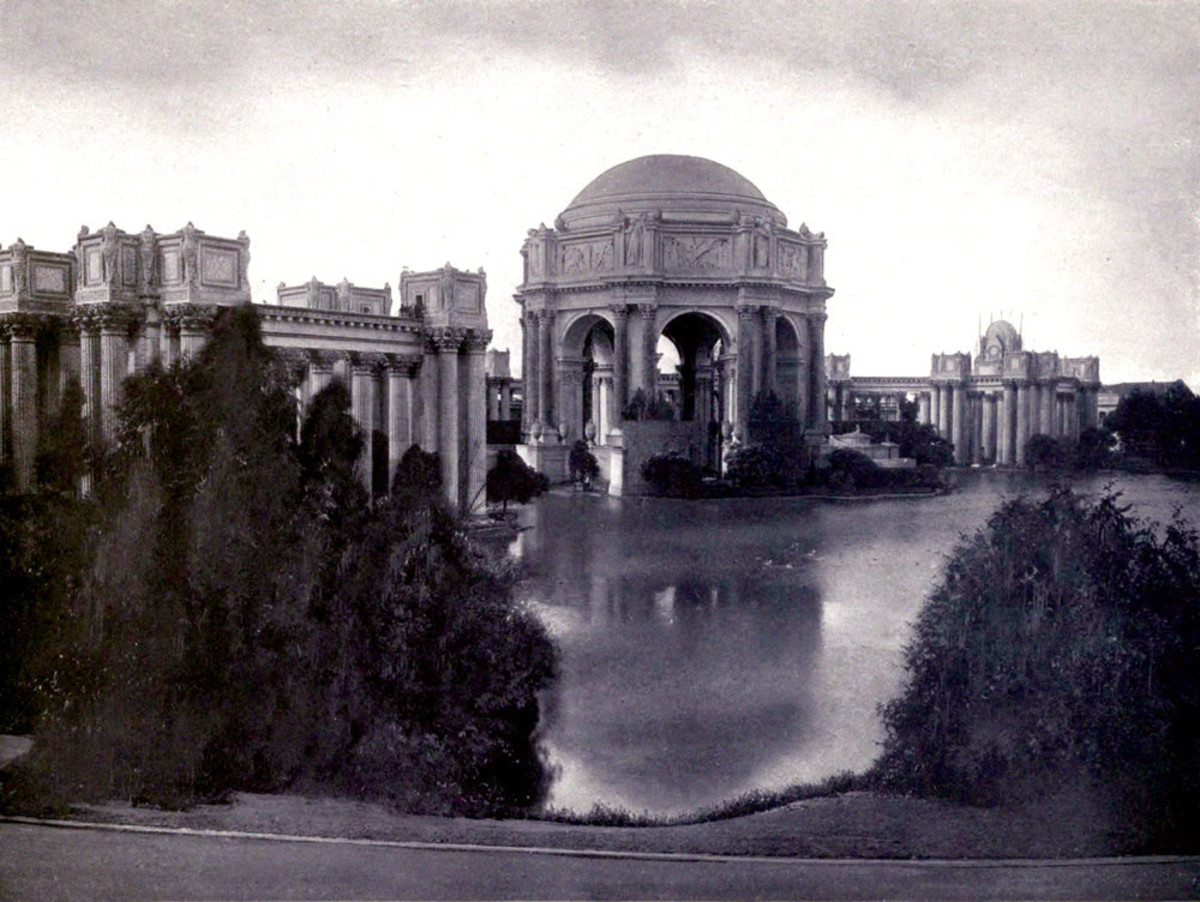
UKL
I grew up in a house designed and built (in Berkeley, in 1906) by Bernard Maybeck. I published an article in Paradoxa in 2008 about my sense of what that house gave me as a person and as an artist. Maybeck, in contrast to Frank Lloyd Wright and subsequent “egotects,” considered not only the congruence of a house to its landscape/cityscape, and the interrelation of its interior and its immediate surroundings, but also its daily use, usefulness, and amenity to the family living in it. His vision was humane and organic—no “machines for living.” His style, domestic or public, is highly characteristic; yet despite their sometimes improbable materials—10-foot redwood beams, chicken wire, plaster, burlap his buildings (like the Palace of Fine Arts in San Francisco, built a century ago to be demolished after a year, but miraculously still standing because it is so beloved) occupy space with the nobility of proportion and the modest inevitability of a Greek temple or a well-built bridge.
I absorbed a certain sense of both the freedom and the responsibility of the artist, and perhaps some insight into the nature (the “architecture”) of the novel, from living all my childhood in such a house.
MK
Do you think the general drift of culture has made some of your earlier ideas less radical today—and others more so?
UKL
I don’t think all that much about my earlier work. I still have some work to do, which interests me more than harking back. I seem still to be a radical, if not more so than ever—or is it just that as corporate capitalism congeals around us, paralyzing us with paranoia and denial, the simplest assertion of responsibility, of human community, of larger community, is coming to look radical?
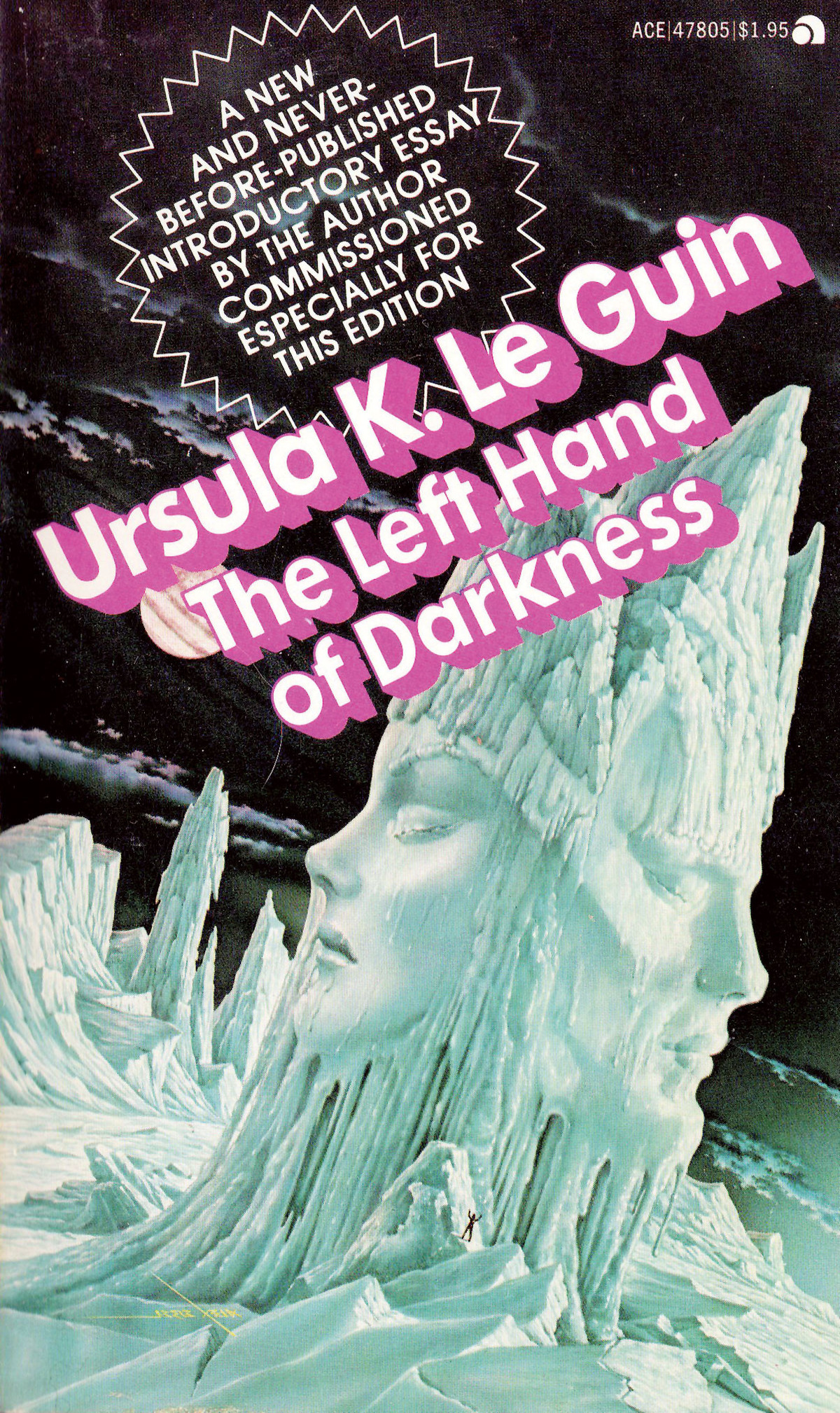
MK
Now, at 85, you have said that you won’t be writing any more book-length projects. Are there still any plausible or desirable worlds in your mind that remain unwritten? And speaking of possible worlds, do you think science fiction, and your work in particular, could inform those whose work explicitly deals with imagined futures, like architects, designers, or policy makers?
UKL
Any kind of fiction and poetry can inform the work of people who try to imagine and shape and build what is to come, just as their work informs that of the poets and storytellers. In much of Europe and all of Latin America the active role of writers in the work of political and practical imagination is taken for granted. In the United States we read some of our poets and novelists in school, then put them into boxes in the attic, shut the boxes, and come downstairs to watch reality TV. Americans are still afraid of dragons, and poets, and the real world.
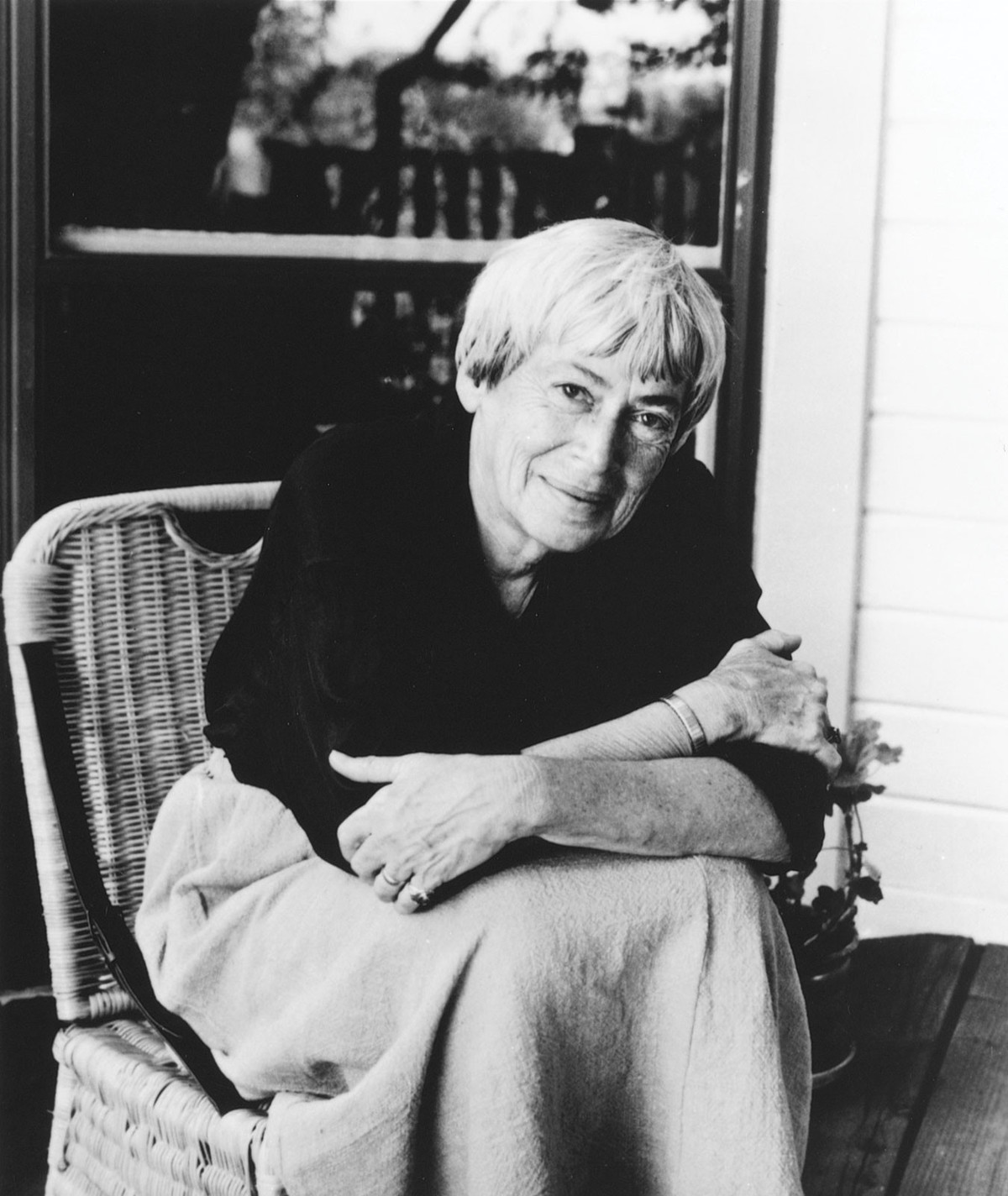
Ursula K. Le Guin has published more than 60 books of fiction, fantasy, children’s literature, poetry, drama, criticism, and translation. She is the winner of many awards, including the PEN/Malamud Award and the National Book Foundation Medal for Distinguished Contribution to American Letters.
Martti Kalliala is an architect whose work focuses on the intersection of technology, social innovation, and built form.
